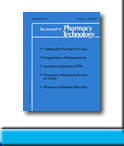 |
 |
SELECTIVE
SEROTONIN-REUPTAKE INHIBITORS IN PREMENSTRUAL DYSPHORIC DISORDER
Irma G Barcelona and Laurie S Mauro
To request full article click here.
OBJECTIVE: To briefly review the symptoms of premenstrual syndrome (PMS), late luteal-phase dysphoric disorder (LLPDD), and premenstrual dysphoric disorder (PMDD); summarize the physiologic relationship between serotonin and these disorders; and review the available clinical information on the role of selective serotonin-reuptake inhibitors (SSRIs) in the treatment of LLPDD/PMDD.
DATA SOURCES: A MEDLINE search for English-language journal articles published between 1966 and August 2000 was performed, with the following keywords: serotonin reuptake inhibitors, fluoxetine, sertraline, or paroxetine matched with premenstrual syndrome, late luteal-phase dysphoric disorder, or premenstrual dysphoric disorder.
DATA SELECTION AND EXTRACTION: All English-language clinical studies of SSRIs for LLPDD/PMDD were included. Study design, population, methods, clinical outcomes, and adverse effects were evaluated.
DATA ANALYSIS: Continuous therapy with SSRIs, particularly fluoxetine and sertraline, is beneficial in the pharmacotherapy of LLPDD/PMDD. Response rates vary, but are generally near 65% for global clinical outcomes. Both behavioral and physical symptoms are improved. Studies as long as 18 months have demonstrated continued benefit with SSRI therapy. Recent literature suggests that intermittent therapy with these agents, only during the luteal phase, may provide benefits similar to those achieved with continuous therapy in selected patients.
CONCLUSIONS: The SSRIs, particularly fluoxetine and sertraline, are useful in the pharmacotherapy of LLPDD/PMDD.
J Pharm Technol 2001;17:131-9.
ACPE Universal Program Number: 407-000-01-052-H01
To order the complete CE article click here.
To request full article click here.
|
|
|
||
|

